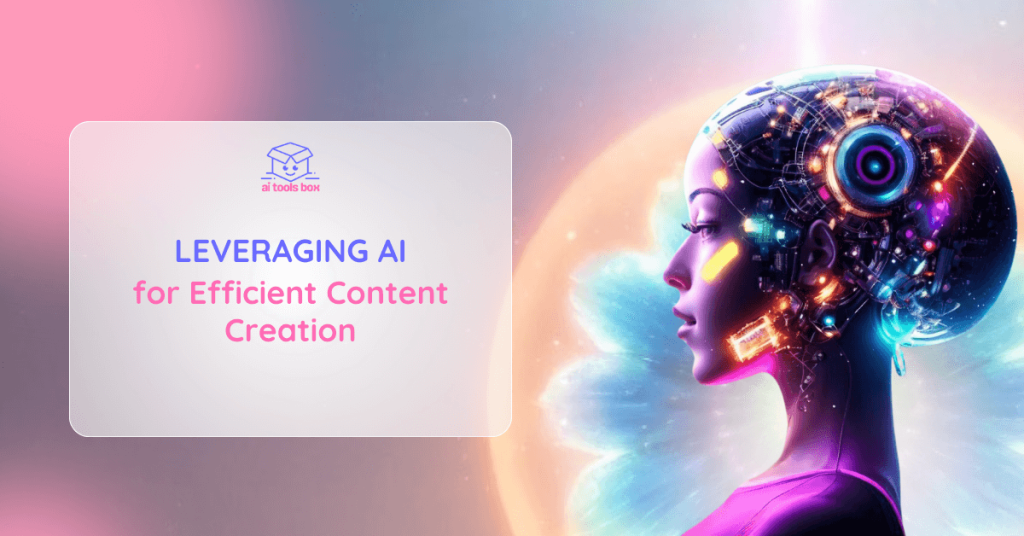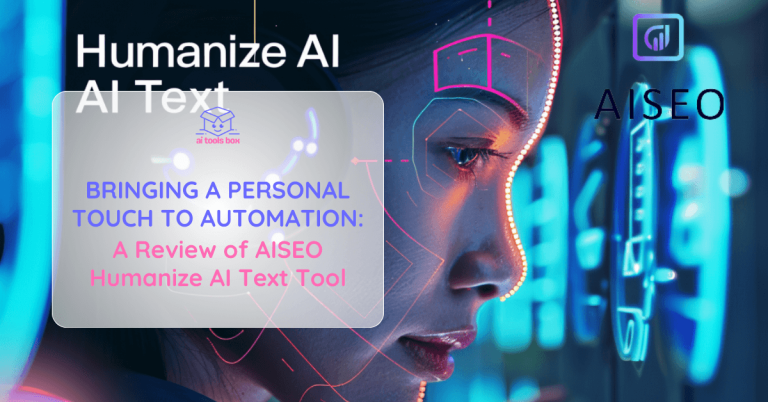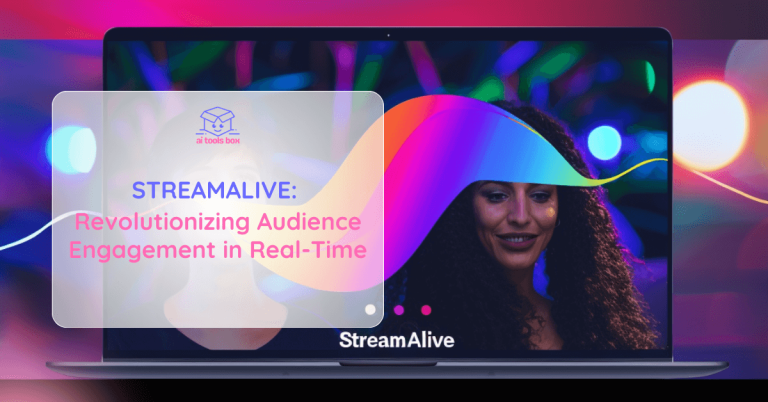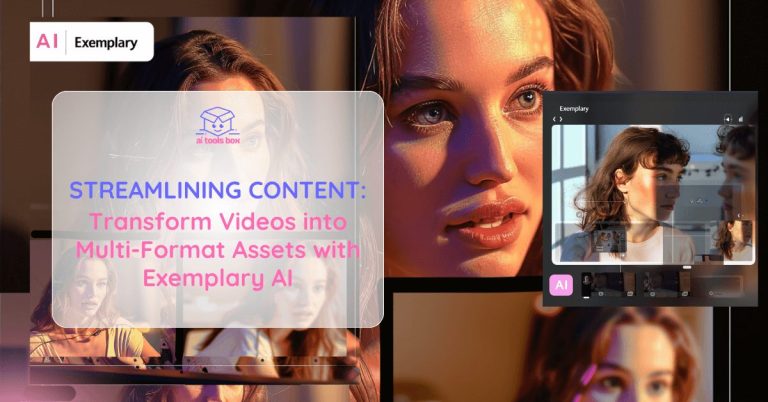In the realm of content marketing, the integration of Artificial Intelligence (AI) marks a significant evolution. Traditional methods, while effective, often demand considerable resources and time to produce content that truly resonates with audiences. AI technology, with its capacity to analyze vast datasets, recognize patterns, and generate relevant content, offers a streamlined approach to these challenges. This technology automates routine tasks and generates insightful, personalized content, thereby transforming how marketers conceive and execute their content strategies.
Expanding with Examples
Several leading brands have already harnessed the power of AI to enhance their content creation efforts.
For instance, a major sports apparel company uses AI to generate product descriptions that are not only rich in keywords but also tailored to the preferences of their diverse customer base. This approach has not only improved their online engagement rates but also significantly reduced the time their creative teams spend on routine descriptions.
Furthermore, a well-known media conglomerate employs AI systems to draft preliminary reports on financial markets, which journalists then enrich with expert analysis and insights. This dual approach ensures both speed and depth in their content, catering to the needs of their highly informed audience.
AI is not just a tool for automation but a partner in creativity. It offers new ways to engage audiences and deliver content that informs, entertains, and inspires. This section explores the revolutionary impact of AI on content production, from generating articles and social media posts to strategic planning and analysis of content campaigns.

Join us as we delve deeper into how AI is not merely reshaping, but significantly enhancing the creative landscape of content marketing.
The Evolution of AI in Content Marketing
AI's journey in content creation began with simple automation tasks such as spell checks and grammar corrections. However, as AI technology has advanced, so too have its applications within content marketing. Today, AI tools are capable of performing more complex tasks, including generating entire articles based on keywords and creating personalized content that resonates with specific audience segments. This evolution from basic automation to sophisticated content generation reflects the growing potential of AI to support and enhance content marketing strategies.
Historical Context
The initial use of AI in marketing can be traced back to basic data analysis tools that helped marketers understand large data sets. Over time, these tools have evolved into more sophisticated systems capable of complex predictive analytics and natural language processing. The introduction of platforms such as the Generative Pre-trained Transformer (GPT) series has marked a significant leap in AI's ability to produce coherent and contextually relevant text, thereby broadening the horizon for what AI can achieve in content creation.
Case Studies
- Consider the example of an online retailer that implemented an AI-driven system to create product descriptions and ad copy. The system analyzes existing product data and customer reviews to generate unique, compelling content that has led to a measurable increase in user engagement and conversion rates.
- Another case involves a travel agency that uses AI to craft personalized travel itineraries based on customers’ past behaviors and preferences, significantly enhancing customer satisfaction and loyalty.
These examples illustrate not only the versatility of AI in content creation but also its capacity to drive tangible business outcomes through enhanced engagement and efficiency.
The Impact of AI on Content Production
AI's influence on content production is multifaceted, offering significant benefits that extend well beyond mere efficiency. One of the most notable advantages is the capacity to produce a high volume of content rapidly, a necessity in today's content-saturated digital environment. Additionally, AI-driven content creation tools can analyze user engagement and preferences, enabling marketers to craft content that is not only relevant but also highly engaging to their target audience.

Case Studies
- For instance, a leading financial news outlet employs AI to generate quick, initial drafts of market analysis articles during high-volatility periods. This allows their human analysts to focus on adding expert insights and complex analyses, speeding up the publication process without sacrificing depth or accuracy.
- Similarly, a lifestyle brand uses AI to monitor and analyze social media trends, enabling it to produce timely and targeted content that drives engagement and builds brand loyalty.
Technical Explanation
AI achieves these feats through sophisticated algorithms capable of learning from data inputs and continuously improving over time.
For example, AI content management systems can dynamically adjust content based on real-time user interactions, such as altering recommendations on a streaming platform or adapting the difficulty level of recommended exercise routines in a health app based on user feedback.
Personalization at Scale
Perhaps the most transformative aspect of AI in content creation is its ability to personalize content at scale. By analyzing vast amounts of data on user behavior and preferences, AI can tailor content to meet the unique needs and interests of individual users. This level of personalization not only enhances user engagement but also fosters brand loyalty and ultimately drives conversion rates, showcasing the profound impact of AI on content marketing.
Technical Explanation
Utilizing machine learning algorithms, AI systems can segment audiences based on behaviors, preferences, and demographic data, enabling content creators to deliver highly personalized messages. For example, e-commerce platforms use AI to show users products similar to what they have viewed or purchased before, while media sites may suggest articles and videos based on browsing history.
Broader Implications
This capability democratizes content creation, making sophisticated marketing strategies accessible to smaller players. Small businesses and independent creators, who may not have the resources for large-scale content production, can leverage AI tools to compete effectively with larger enterprises. This democratization not only levels the playing field but also stimulates innovation and diversity in content marketing.
As AI continues to evolve, it offers even greater opportunities for content creators to innovate, meet customer expectations more precisely, and enhance the effectiveness of digital marketing campaigns. The integration of AI in content marketing heralds a new era of creativity, personalization, and engagement, transforming the way brands connect with their audiences.
AI Tools for Content Generation
The rise of Artificial Intelligence (AI) has introduced a suite of tools that are revolutionizing content generation within the realm of digital marketing. These AI-powered platforms are not just augmenting the content creation process; they're reshaping how marketers approach content strategy, enabling the production of diverse and engaging content at an unprecedented scale.
Exploring AI-Driven Content Creation Tools
A variety of AI tools have emerged, each designed to streamline different aspects of content creation. Here are some of the most notable:
- Language Generation Tools: Platforms like the Generative Pre-trained Transformer (GPT) can produce coherent and contextually relevant text based on input prompts, making them invaluable for generating articles, blog posts, and even creative content.
- Content Optimization Tools: These tools analyze existing content and suggest improvements based on SEO best practices, readability scores, and user engagement data, helping creators optimize their content for better performance.
- Automated Research Tools: AI-powered research tools can sift through vast amounts of data to gather insights, statistics, and references, significantly reducing the time and effort required for content research.
Benefits of Using AI for Content Generation
The benefits of leveraging AI tools for content generation are manifold:
- Efficiency: AI can produce content faster than traditional methods, allowing marketers to maintain a consistent content output without compromising quality.
- Scalability: With AI, businesses can scale their content production to meet growing demands, ensuring a steady stream of fresh content.
- Personalization: AI tools can tailor content to match the preferences and interests of specific audience segments, enhancing engagement and relevance.
- Innovation: AI encourages creativity by providing new perspectives and ideas, pushing the boundaries of conventional content creation.
Case Studies and Success Stories
Many businesses have successfully integrated AI into their content strategies, witnessing significant improvements in engagement, traffic, and conversions.
- For instance, a news outlet might use AI to generate brief news summaries, allowing journalists to focus on in-depth reporting.
- Similarly, e-commerce brands have utilized AI to create product descriptions that are both SEO-friendly and personalized for different customer segments.

Enhancing Creativity and Productivity with AI
In the quest for compelling content, digital marketers and creators often face the dual challenges of maintaining creativity and productivity. Artificial Intelligence (AI) emerges as a powerful ally in this journey, offering tools and technologies that enhance both aspects simultaneously.
AI's Role in Boosting Creativity
Creativity is the lifeblood of content marketing, and AI tools are enhancing this crucial element in several ways:
- Idea Generation: AI can analyze current trends, user interests, and historical data to suggest unique content ideas, helping creators break through writer's block and explore new topics.
- Content Diversification: By leveraging AI, marketers can experiment with different content formats, such as interactive posts, personalized videos, or dynamic infographics, enriching the audience's experience.
- Language Experimentation: AI-driven writing assistants suggest variations in tone, style, and wording, enabling writers to refine their message and connect more effectively with their audience.
Improving Productivity Through AI
Beyond creativity, AI significantly boosts productivity in content creation:
- Automated Content Creation: Tools that automatically generate draft content can save hours of writing time, allowing creators to focus on refining and personalizing the output.
- Content Scheduling and Distribution: AI platforms can optimize the scheduling and distribution of content across multiple channels, ensuring maximum visibility and engagement.
- Performance Analysis: AI-driven analytics tools provide real-time insights into content performance, helping marketers quickly adjust their strategy to improve results.

Case Studies of AI in Action
Real-world examples abound of businesses leveraging AI to enhance creativity and productivity:
- A marketing agency uses AI to generate dozens of ad copy variants, testing and refining to find the most effective messaging.
- An online magazine employs AI to suggest article topics based on trending searches and social media activity, keeping their content relevant and engaging.
The synergy between AI and content creation opens up a world of possibilities for marketers. By embracing AI tools, businesses can not only streamline their content production processes but also elevate the quality and impact of their content. As AI technology continues to evolve, its role in fostering creativity and productivity in content marketing is set to grow, offering exciting opportunities for innovation and engagement.
AI in Content Strategy and Analytics
The strategic planning and analysis of content are critical components of successful digital marketing. Artificial Intelligence (AI) plays a pivotal role in these areas, offering tools and insights that significantly enhance content strategy and analytics. By leveraging AI, marketers can make data-driven decisions that align with their business objectives and audience needs.
Strategic Planning with AI
AI transforms content strategy through predictive analytics and machine learning, enabling marketers to:
- Identify Trends: AI algorithms can analyze vast amounts of data from various sources to identify emerging trends, allowing marketers to create content that resonates with current interests.
- Audience Segmentation: By analyzing user behavior, AI helps marketers segment their audience more accurately, enabling the creation of targeted content strategies for different groups.
- Content Optimization: AI tools suggest optimal posting times, content formats, and distribution channels, ensuring that content reaches its intended audience with maximum impact.
Analytics and Performance Optimization
AI significantly enhances content analytics, providing insights that go beyond traditional metrics:
- Engagement Analysis: AI tools can delve into engagement data, offering deeper insights into how users interact with content, including time spent on page, interaction rates, and social sharing metrics.
- Predictive Performance: Using historical data, AI can predict how new content might perform, helping marketers allocate resources more effectively and adjust strategies in real time.
- ROI Measurement: AI enhances the accuracy of ROI calculations for content campaigns by integrating data from multiple sources and analyzing the direct and indirect impact of content on sales and conversions.
Real-World Applications
Businesses leveraging AI in their content strategy and analytics have seen remarkable improvements in efficiency and outcomes:
- A retail brand uses AI to analyze customer reviews and social media mentions, guiding their content strategy to address common questions and concerns.
- A tech company employs AI to track the performance of different content types, refining their strategy to focus on the most effective formats and topics.
Incorporating AI into content strategy and analytics not only streamlines these processes but also unlocks new opportunities for growth and engagement. By embracing AI, marketers can ensure their content not only reaches but also resonates with their audience, driving measurable results.
Ethical Considerations and Future Outlook
As Artificial Intelligence (AI) continues to redefine the landscape of content creation and digital marketing, it is essential to navigate the ethical considerations that accompany its use. At the same time, looking toward the future offers insights into how AI may further evolve and shape the industry.
Navigating Ethical Considerations
The deployment of AI in content creation raises several ethical questions:
- Authenticity and Transparency: Ensuring content generated by AI maintains a level of authenticity and transparency with audiences is crucial. Marketers must disclose the use of AI where necessary and strive to keep the human element intact in their messaging.
- Data Privacy: AI's ability to personalize content heavily relies on data. Protecting user privacy and adhering to data protection regulations is paramount to maintaining trust and integrity in AI-driven content strategies.
- Bias and Fairness: AI systems are only as unbiased as the data they're trained on. Identifying and correcting biases in AI algorithms is essential to ensure content and recommendations are fair and inclusive.
The Future Outlook of AI in Content Creation
The future of AI in content creation and marketing is bright, with ongoing advancements promising even more sophisticated tools and capabilities:
- Evolution of AI Technologies: As AI technology continues to evolve, we can expect more advanced and nuanced content generation tools that better mimic human creativity and emotional intelligence.
- Integration with Emerging Technologies: The integration of AI with other emerging technologies such as augmented reality (AR) and virtual reality (VR) could open new avenues for immersive and interactive content.
- Greater Personalization and Interactivity: Future AI tools will likely offer even deeper personalization, tailoring content not just to user preferences but also to real-time moods and contexts, enhancing engagement and user experience.
Final Review and SEO Optimization
To ensure that the content reaches its intended impact and effectiveness, a comprehensive final review and careful SEO optimization are crucial steps before publication.
Proofread the Article
- Thoroughly proofread the article one more time for any grammatical errors or inconsistencies.
- Confirm that all sections flow logically and that the article maintains a cohesive narrative.
- Verify that all images are correctly placed and relevant to the accompanying text.
Metadata Accuracy
- Double-check that the metadata for the article and images is correctly implemented. This includes the title, meta description, keywords, slug, image file names, alt text, and image descriptions.
SEO Optimization
- Ensure that the article includes targeted keywords naturally throughout the text.
- Check that headings and subheadings are used effectively to structure the content and include keywords where appropriate.
- Make sure the website is technically optimized for SEO, including mobile responsiveness and fast loading times.
- If applicable, use structured data markup to help search engines understand the content of your article better.
Technical Setup
- Assess the technical setup of the website hosting the content to ensure it is optimized for search engines. This includes checking for fast loading times and mobile responsiveness, both of which are crucial for maintaining high search rankings and user satisfaction.
Promotion Plan
- Plan how you will promote the article through social media, email newsletters, or other channels to drive traffic to your website.
- Consider engaging with your audience through comments or social media to further boost engagement and foster a community around your content.
The Future Way
As we have explored throughout this article, Artificial Intelligence (AI) is transforming the landscape of content creation and digital marketing in profound ways. By automating mundane tasks, enabling personalized content at scale, and providing tools for strategic planning and analysis, AI is not only improving efficiency but also enhancing the creativity and relevance of content across industries.
The Road Ahead
The integration of AI in content marketing is just beginning. As technology evolves, we can anticipate even more sophisticated applications that will continue to shape content strategies and consumer interactions. The ongoing development of AI technologies promises to bring deeper insights, more precise targeting, and greater efficiencies, pushing the boundaries of what is possible in digital marketing.
Embracing Change
Marketers and content creators are encouraged to embrace AI tools to stay competitive in a rapidly changing digital environment. By leveraging AI, businesses can not only streamline their operations but also deliver content that is engaging, relevant, and personalized to the needs of their audience. The future of content marketing, powered by AI, offers a landscape filled with opportunities for those ready to explore and adopt these new technologies.
Ethical Responsibility
Finally, as we harness the power of AI, it remains imperative to navigate its use responsibly. The ethical considerations discussed—ensuring authenticity, safeguarding data privacy, and addressing biases—must be at the forefront of any AI-driven strategy. By maintaining a commitment to these principles, marketers can ensure that their use of AI supports a fair, transparent, and inclusive digital marketing ecosystem.
In conclusion, the role of AI in content marketing is transformative and expanding. It is up to marketers and content creators to continually adapt, innovate, and responsibly integrate these technologies to meet the evolving demands of their audiences. The future of content creation, rich with AI-driven potential, is an exciting frontier for creativity, engagement, and growth.



